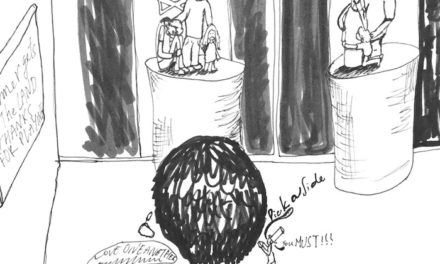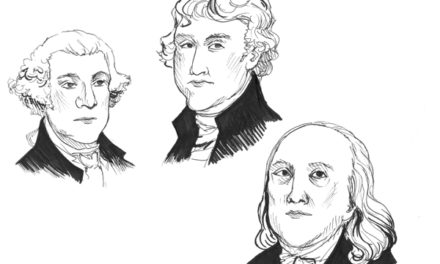When The Harvard Crimson covered a student-led protest of U.S. Immigration and Customs Enforcement (ICE), it never expected to receive harsh backlash from over 650 students for asking ICE to comment. Protesters worried that The Crimson’s communication with ICE could potentially endanger DACA students attending Harvard. However, protests are public acts, and news organizations like The Crimson have an ethical obligation to cover them objectively by seeking comment from all parties. We support The Crimson’s decision to ask ICE for comment, and moreover, it showed the journalistic integrity necessary for good reporting.
The group that organized the event, Act on a Dream, accused The Crimson of “tipping [ICE] off” and “blatantly [endangering] undocumented students on [their] campus.” Following The Crimson’s coverage, Act on a Dream and Harvard College Democrats, along with several other student groups, petitioned the newspaper to apologize.
Though the petition picked up traction, The Crimson expressed in a note to their readers that they firmly stand by their decision and that they were following “a commonly accepted set of journalistic standards.” The newspaper referred to the Society of Professional Journalists (SPJ) Code of Ethics, which states that “journalists should diligently seek subjects of news coverage to allow them to respond to criticisms or allegations of wrongdoing.”
In this case, Crimson reporters did not identify any student as undocumented in the article, nor did they provide any names in their communication with ICE which occurred after the protest.
According to The Crimson, their correspondence with ICE only provided “public information and a broad summary of protestors’ criticisms.” Here, The Crimson demonstrated careful deliberation and an understanding of its responsibility to the public.
There is dissonance between engaging in protest and later criticizing its inevitable coverage. As a form of advocacy, a successful protest should draw the public’s attention to an issue. In this case, Act on a Dream succeeded, and with that attention comes coverage by the free press. While journalists must consider the possibilities of imminent danger whenever they cover any event, students should understand that public protest can lead to legal ramifications. They made this choice out of their own prerogative, and The Crimson should not be held accountable for the students’ actions. Protesters cannot make an assumption of privacy when they choose to publicly demonstrate.
To be clear, ICE’s actions, particularly since the election of U.S. President Donald J. Trump, have cast a moral stain on the organization. We strongly condemn many of the actions ICE has taken since then, including targeting college students for deportation and separating families at the southern border. However, fair news coverage, which The Crimson intended to provide, must be objective in order to allow people to form their own opinions about these issues.
The pursuit of truth and objectivity does not mean only presenting one side of the story. Without comment from opposing parties, no real change can take place. It is journalists that can serve as intermediaries and communicate these perspectives. In a world where information is plentiful, but easily biased, it is a moral imperative to represent every viewpoint accurately. The Harvard Crimson sought the truth, and Act on a Dream’s rebuke is not only wrong, but misunderstands the mission of journalism itself.
The Editorial Board is composed of Zach Ball, Devin Bog, Jake Busch, Meredith McKelvey, Andrew Kliewer, Boris Niyonzima, Nick Pernas, Kimia Tabatabaei and Grace Yang.
The Editorial Board is the official voice of the Emory Wheel and is editorially separate from the Wheel's board of editors.





